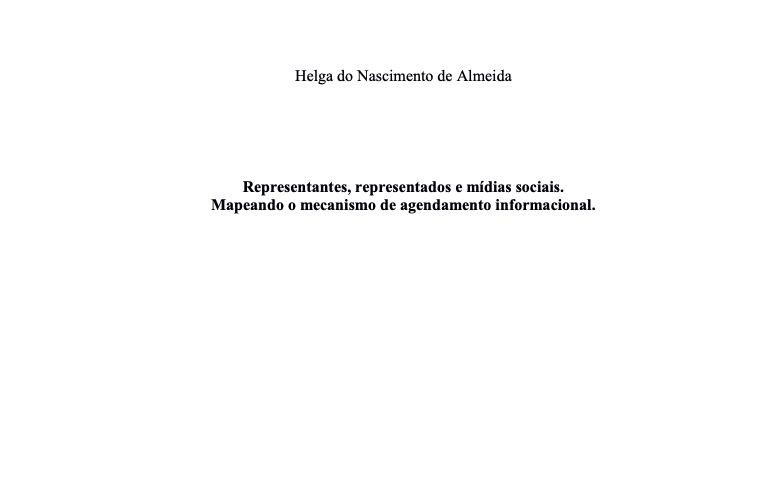New Code of Civil Procedure: the judiciary as a pressure group on the legislative process.
1 de January de 2018Comprative analysis of organizational strategies of lobbies in the constituent process os 1987-88
10 de September de 2018Action repertoire of the Deaf Movement in Brazil: campaign for the official recognition of the Brazilian Sign Language

This study intends to analyze the movement of the Deaf community along the process for the Libras Language institutionalization, from 1990 to 2002, from the perspective of the Political Process (TPP), with a special focus on the Repertory of Action with lobbying tactics. The core of the research lies in the dynamics between the actions of the Deaf movement and the processing of PLS 131/96, which was subsequently transformed into PL 4857/98, until its approval in April of 2002, and the use of the Repertory of Action, with lobbying tactics, as determinant for this achievement. When Libras was made official in 2002, it was the result of many years of struggle for the Brazilian Deaf community. This victory reflected the efforts of a group that for many years was marginalized, not being able to take part in the decisions concerning its distinctive interest, such as, education. This was initially done through a social network that was developed from sports associations and religious and educational institutions, and the group outlined the importance of getting politically organized and being protagonist in their struggles. The performance of FENEIS – National Federation of Education and Integration of the Deaf was essential to this process because it started the organization of most part of the collective actions that culminated in Bill No. 131/96, presented by Senator Benedita da Silva of PT-RJ, which was later transformed into Federal Ordinary Law 10,436 – Law of Libras (Brazilian signs language) .To get closer to the object and subjects of this study, a bibliographical and a documentary research was made on the history of the movement engendered by the Brazilian deaf community and institutions in various archives and documentation centers, as well as through media archives. At the end, this dissertation concludes that the lobby made by the Deaf movement among the political representatives, especially from the federal legislature, was determinant for making Libras the official language for the deaf people.;
Author: Eduardo Henrique Lima Paixão
Source: https://repositorio.jesuita.org.br/handle/UNISINOS/7041
